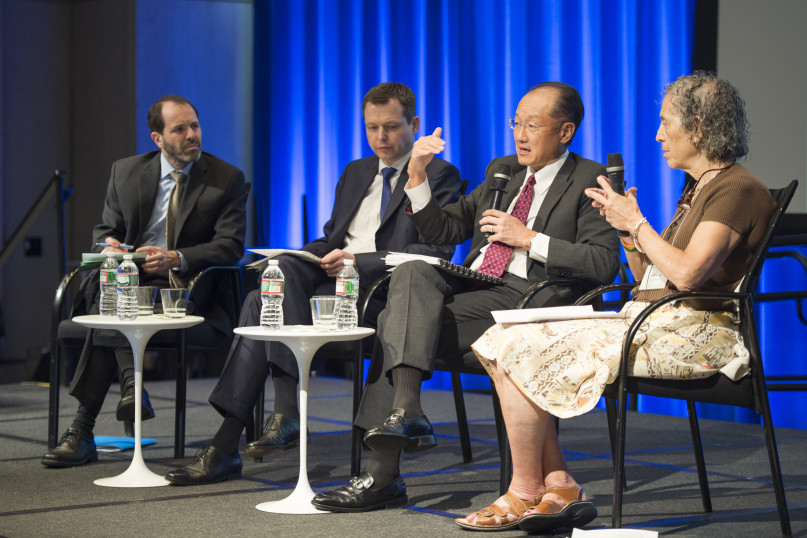Washington, D.C. – The venerable medical journal, The Lancet, has taken on a topic never before addressed in a special issue– the role of religion and faith-based development organizations in global health. The Lancet issue on faith-based health care was released on July 7th at a conference in Washington, DC, with attendees from archbishops to health officials, CEOs of faith-based organizations to senior policy experts and academics.
The “Religion & Sustainable Development: Building Partnerships to End Extreme Poverty “ conference was convened and co-hosted by key players on the world development stage: the World Bank Group, the German, British and US government development agencies, GHR Foundation, World Vision and the Joint Learning Initiative on Faith and Local Communities (an international coalition of faith based organisations and academic institutions). Co-sponsors included the Catholic Medical Mission Board, Catholic Relief Services, Islamic Relief USA, American Jewish World Service, Tearfund, IMA World Health and McKinsey & Company.
This global effort to support more effective partnerships between the secular and public sectors, and religious and faith-based groups shares a common goal: to end extreme poverty and promote sustainable development.
“We are the first generation in history that can say we can end extreme poverty in our lifetime,” said World Bank President Dr. Jim Kim. “We can’t get there without all of you,” he added, addressing the faith communities. “We need prophetic voices to inspire us and evidence to lead the way.”
Faith-based global health and development organizations have long been in the field, often on the front lines and trusted by local communities. But evidence-based measurable outcomes are hard to come by, and many challenges to partnership with faith-based groups exist, including issues relating to family planning, gender discrimination and LGBTQ rights. Many secular entities have steered clear of engaging with faith-based organizations, and find themselves without the know-how to forge partnerships that work for both sides.
But as international development policy makers grapple with how to achieve the new ambitious goals of ending extreme poverty by 2030, and implementing the Sustainable Development Goals, SDGs, pragmatists are looking for ‘all-hands’, ‘whole of community’ approaches to engagement.
Jean Duff, of the Joint Learning Initiative on Faith & Local Communities, and Lancet contributing author, said: ” The demands of scaling up and reaching the goal of ending extreme poverty by 2030 are pushing even secular skeptics towards a consideration of how best to partner with faith-based organizations to achieve life-saving health and other development goals, and in turn encouraging faith groups to be more attentive to tracking their contributions to health outcomes.
Martin Mauthe-Kaeter, the deputy head of policy division at the German Federal Ministry for Economic Cooperation and Development, noted the gathering was an opportunity to see development differently: “It felt like a highly collaborative, jointly owned event. … This has given us a change to think differently about development – not just about financial and technical issues, but about values.”
Dr. Azza Karam, senior advisor on culture for the United Nations Population Fund, concluded: “The engagement with faith actors is now the ‘new normal.’ This meeting at the World Bank has given this legitimacy.”
Note to Editors: The conference proceedings are available online at: http://jliflc.com/conferences/religion-sustainable-development-building-partnerships-to-end-extreme-poverty/
Online now: The Lancet Series on Faith-based Health Care can be viewed here: http://www.thelancet.com/series/faith-based-health-care.





